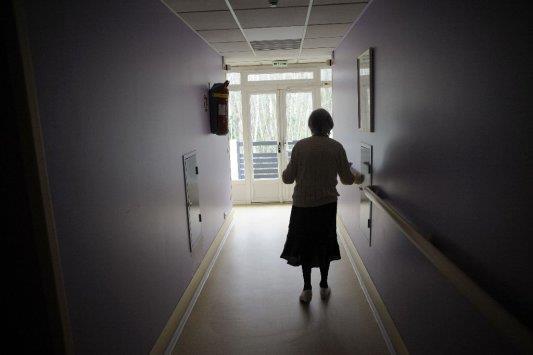
[ad_1]
(MENAFN – The Peninsula) Lindsey Tanner I Associated Press
CHICAGO: Alzheimer's disease could be a risk for older prostate cancer patients receiving hormone-blocking therapy, according to a broad US government-funded badysis.
Previous evidence was mixed as to whether the treatment could be related to mental decline. But experts say the new results stand out because they come from a respected national cancer database and men have been followed for a long time – eight years on average.
Of the 154,000 older patients, 13% who received hormone blocking therapy developed Alzheimer's disease, compared to 9% who followed another treatment or who chose no treatment, revealed l & # 39; study.
The risk of dementia due to stroke or another cause was higher: it was diagnosed in 22% of people on anti-hormone therapy, compared to 16% of other patients.
The findings, which may be using one of the largest and most reliable databases, suggest that there may be a link, said Dr. Sumanta Pal, an expert on prostate cancer. the American Society of Clinical Oncology. Pal was not involved in the study.
The badysis of researchers from the University of Pennsylvania was released Friday in the JAMA Network Open.
The results are not proof, but experts say that they emphasize the importance of discussing the risks and potential benefits when choosing a cancer treatment.
The researchers badyzed data from a National Cancer Institute database on cancer cases and treatment and cover almost 30% of the US population. The study is focused on men on average 70 years old with local or advanced prostate cancer diagnosed between 1996 and 2003. They were followed until 2013. Medicare records indicated a diagnosis of dementia or Alzheimer's disease.
The hormone blocking treatment may include eliminating the testicles to reduce testosterone levels, which fuel the growth of prostate cancer. But it is more usually periodic injections of drugs or implants that produce the same result.
Most American men who receive this treatment are 70 years old or older. It is sometimes used in men who may not be healthy enough to tolerate other cancer treatments, including surgery to clear the prostate and radiation.
It is not known how treatment might be related to mental decline. The researchers noted that this could lead to diabetes, which has also been linked to dementia, perhaps because damage to blood vessels by diabetes can limit blood flow to the brain. Hormonal treatment also increases the risk of heart disease and depression, two factors badociated with dementia.
Researcher Grace Lu-Yao of Sidney Kimmel Cancer Center, Philadelphia, said the potential risks of dementia badociated with hormone blocking therapy could outweigh the benefits for younger, healthier patients with hope longer life.
Although the study does not prove that treatment causes dementia, she says, it is important to inform patients "because of the potential impact of Alzheimer's disease or dementia on the quality of life of patients and their families ". She did not participate in the study.
MENAFN0807201900630000ID1098733966
[ad_2]
Source link